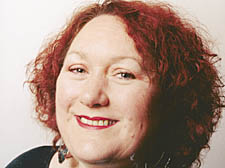|
|
 |
| |
We're planning
ahead for planning success
Heather Johnson says that, though
a tough task, the Town Hall is getting it right on development
IN an ideal world everyone interested in a borough’s
future development would be satisfied with the planning decisions
made. However, one person’s idea of what the community
needs or what constitutes good design is different from the
next person’s.
The council has the – perhaps impossible – task
of trying to put in place planning policies for the future of
the borough, yet within a very directive government framework.
We then have to apply those to the schemes put forward by landowners
and developers. Many people may want the council to dictate
exactly what the community wants to see at any one time.
But this is not the system we operate in because in all cases
there has to be a balancing of interests. These, of course,
include the community and the landowner, but also for example
national or London-wide concerns – and crucially future
generations as well.
I believe Camden has a record second to none in developing sound
and careful policies, which protect the special character and
needs of the borough. Many people are concerned about the scale
and rate of change going on in London.
But many others desperately need the new homes and jobs and
other facilities which are now being built as London grows.
Camden has pushed hard to increase the supply of affordable
housing and over the past five years we have secured 540 affordable
homes through the planning system.
We have also gone further than most in protecting large parts
of the borough as conservation areas because for many people
Camden’s heritage is what makes it a good place to live
and visit.
We’ve always tried to involve as many people as possible
in the planning process and gone beyond what is required by
government for consultation.
Last year, we sent around 60,000 letters seeking comments on
planning applications and an additional 30,000 were sent on
the King’s Cross development alone.
We believe that we are doing consultation well and Camden Council’s
planning department is recognised as one of the best-performing
in the country. But we keep trying to improve, for example with
the recent introduction of the Development Control Forum, which
aims to involve people much earlier in major schemes.
Like in most other authorities, the majority of decisions on
individual planning applications are finalised by planning officers.
The council’s Development Control Sub-Committee, made up
of councillors from all parties, decides this delegation. With
3,000 applications a year, it would simply be impossible for
the sub-committee to hear and decide on all of them.
But we have gone further than most councils to ensure openness
and fairness. Members of the planning sub-committee meet weekly
to review planning applications which have received objections
from residents and are due to be decided on by planning officers.
This is a practice almost exclusive to Camden. The important
point is that whoever makes the decision – the sub-committee
or officers – follows the same rules and makes the same
judgements.
If we were to ignore our own policies and national guidance
in making planning decisions, we would have a large number of
appeals or legal challenges brought against the council. But
Camden’s record here is good. In 2005, 77 per cent of appeals
against Camden Council were dismissed, placing it well above
the London average.
So I believe Camden Council does provide a quality-planning
service making good-quality decisions which are defendable.
We will continue to improve our planning processes, but it is
even more important that we have an open debate and try to reach
more of a consensus about the best future for the borough, and
the policies that can achieve that.
|
|
 |
|

